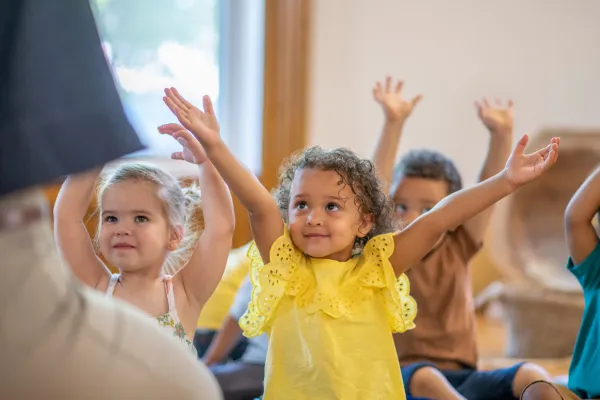
Blog Posts
Explore helpful tips, parenting advice, and insights on early childhood education at our preschool blog in Sandy, UT.

How a High-Quality Preschool Shapes Young Children

Why Choosing the Right Preschool Matters for Your Child
Preschool is an important part of a child’s early development. It sets the stage for lifelong learning, providing a nurturing environment where young children build foundational skills socially, emotionally, and cognitively. For many families, selecting the right preschool program is a big decision. When chosen wisely, a high-quality preschool can make a lasting difference in your child’s educational journey.
High-quality preschools don’t just offer babysitting or playtime. They focus on structured early childhood education that supports every area of a child’s development. At this crucial age, children are learning how to navigate the world around them. They are forming relationships, discovering their interests, and developing the confidence to try new things. In this way, preschool becomes more than a place to learn letters and numbers—it becomes a second home that encourages growth across multiple domains.
One of the biggest benefits of enrolling your child in a strong preschool program is its impact on social and emotional learning. During these early years, children begin to understand how to express their feelings, take turns, share with others, and resolve simple conflicts. A nurturing preschool setting, guided by trained educators, provides the tools and guidance to help children learn these skills in a safe, structured way. The ability to regulate emotions and build healthy social habits is not only crucial in early childhood but also predictive of later academic and life success.
Additionally, high-quality preschools are staffed by educators who are specially trained in early childhood development and special education. These professionals know how to adapt activities and instruction to support all learners, including those who may need additional help or accommodations. With the right support, all young children can thrive. This inclusive approach ensures that no child is left behind and that each learner is seen, heard, and valued.
Educational programming at top-tier preschools includes far more than ABCs and 123s. These programs integrate play-based learning with intentional curriculum planning to foster growth in literacy, math, science, art, and music. Children might explore cause and effect through simple science experiments, build early literacy through storytelling and song, or develop coordination and creativity through movement and dance. These hands-on experiences are rooted in best practices in early childhood education, allowing children to learn in ways that are both natural and effective.
Preschool also offers a key opportunity for children to build independence and learn responsibility. Simple daily routines, such as hanging up backpacks or washing hands before snack time, promote confidence and autonomy. These routines help establish a sense of predictability and structure, which is comforting for young children and supports emotional stability. Teachers work closely with each child to build these routines into everyday life, reinforcing their sense of self and place in the world.
Parents often ask what makes one preschool better than another. While there are many factors to consider, families should look for a program that prioritizes safety, cleanliness, and strong communication with caregivers. A preschool that welcomes parents into the classroom, provides regular progress updates, and offers tours before enrollment is demonstrating transparency and trustworthiness—two essential qualities for any early education provider.
Another feature of a high-quality preschool is its physical environment. Bright, organized, and child-centered classrooms encourage creativity and engagement. Classrooms should be designed with young learners in mind, from child-sized furniture to accessible learning materials. Outdoor play areas are equally important, offering space for large motor development and cooperative play.
It is also vital to mention the role of early education in preparing children for kindergarten and beyond. Research consistently shows that children who attend high-quality preschool programs enter kindergarten more ready to learn. They have stronger vocabulary, better number sense, and more advanced problem-solving skills than peers who did not have a preschool experience. More importantly, they approach learning with curiosity and enthusiasm—two traits that are invaluable throughout life.
In the end, the decision to enroll your child in preschool is not just about academics. It’s about giving them the best possible start in life. It’s about building their confidence, sparking their imagination, and helping them form the social and emotional skills they’ll carry with them for years to come. A high-quality preschool acts as a partner with families, working together to support the whole child—not just in learning, but in life.
Choosing the right preschool is a meaningful step toward shaping your child’s future. By investing in a program that values early childhood education, social development, and academic readiness, you are giving your child a strong foundation for success. Whether your child is outgoing or shy, active or observant, curious or cautious, a great preschool can meet them where they are and help them grow.
